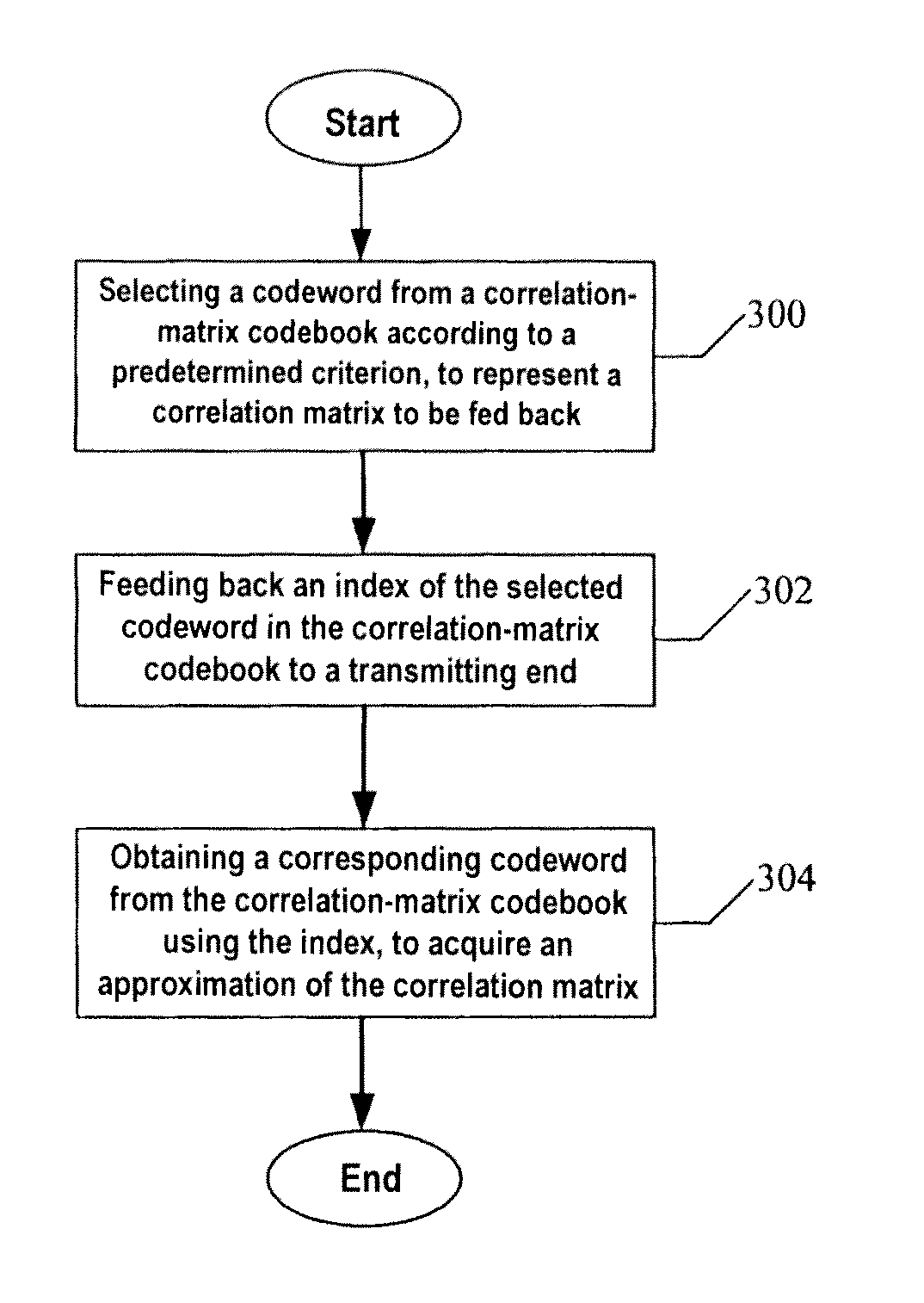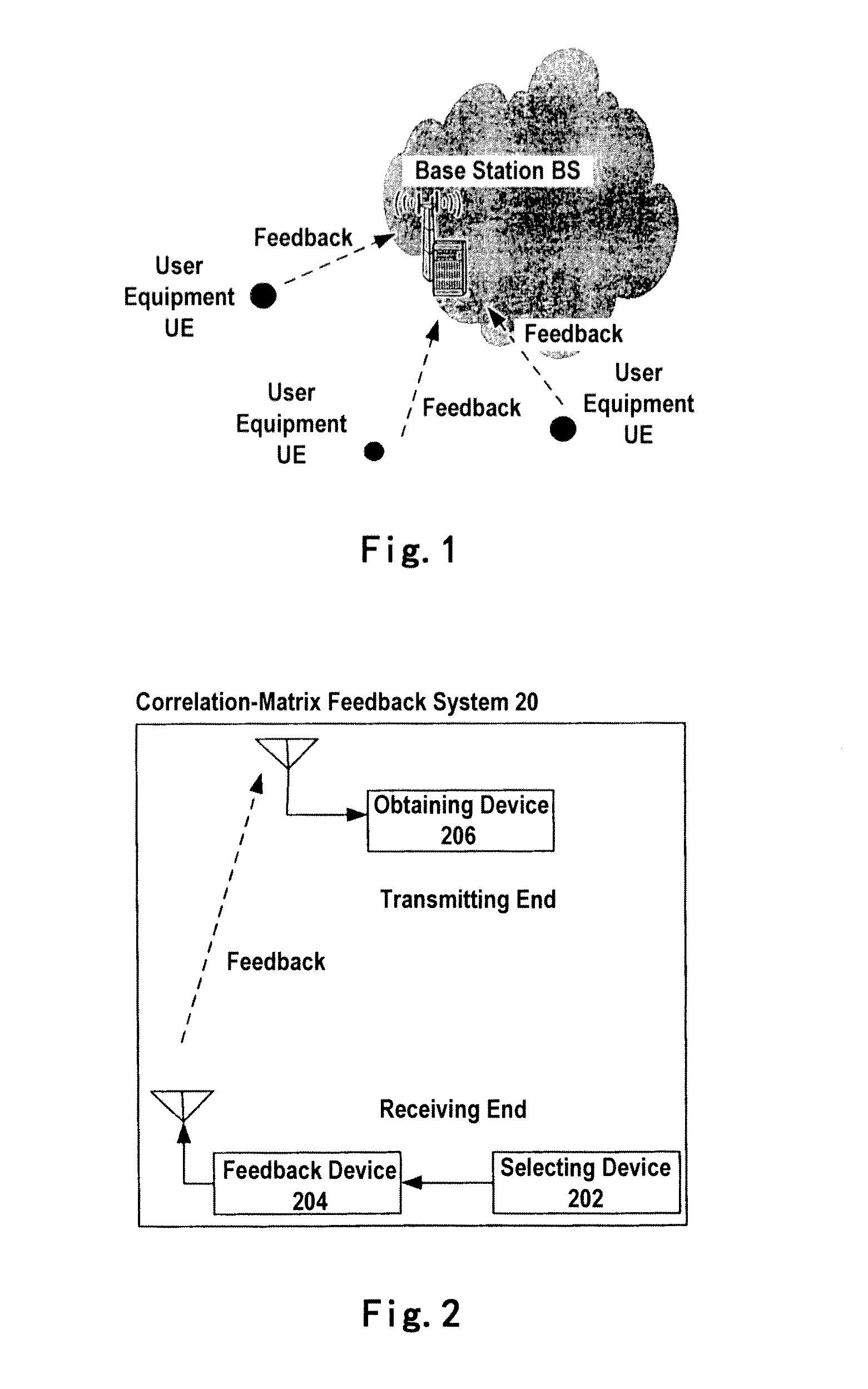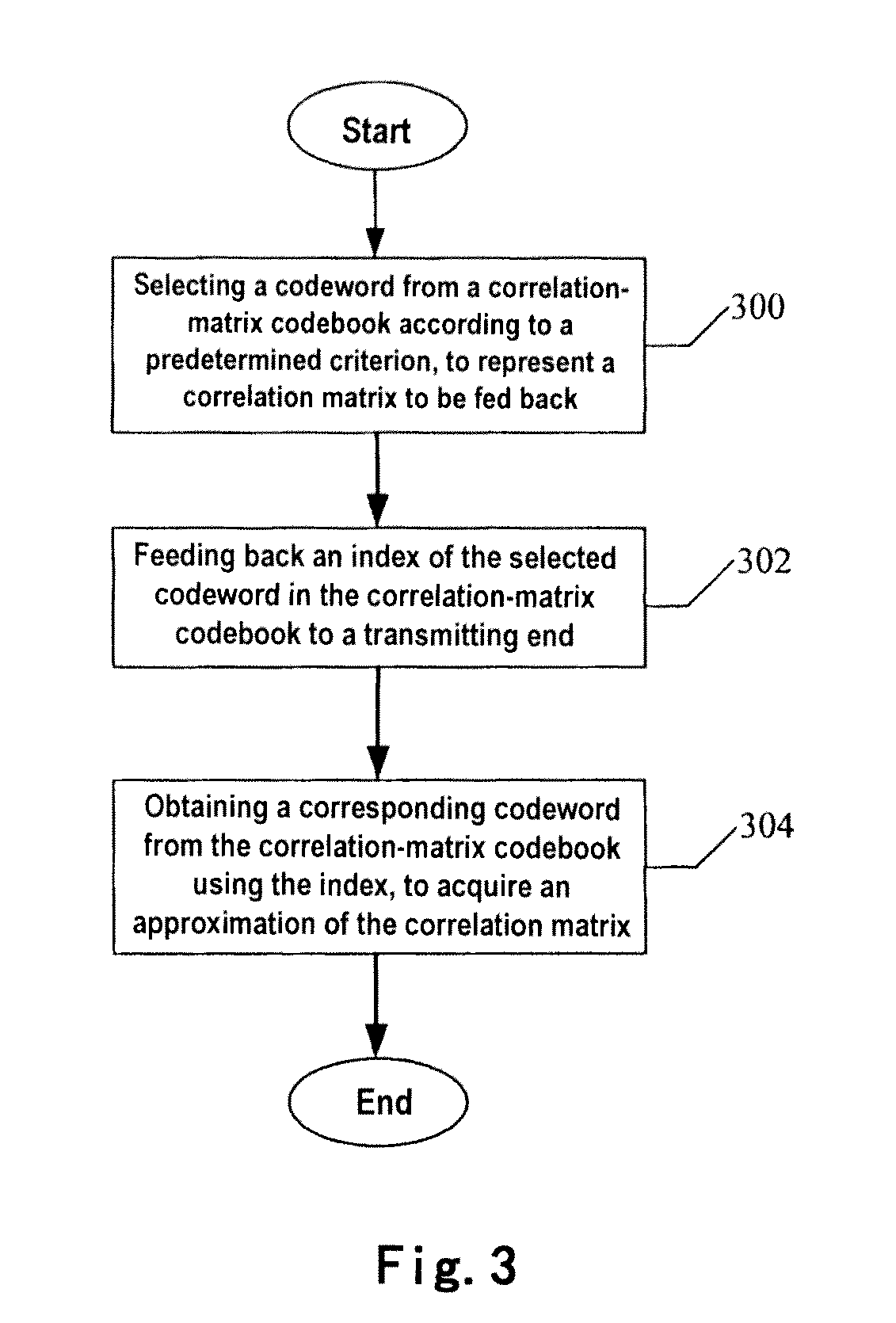Correlation-matrix feedback method and system for antenna array
a matrix feedback and correlation matrix technology, applied in the field of communication technology, can solve the problems of large amount of data to be fed back and higher feedback overhead, and achieve the effect of reducing feedback overhead and computational complexity, and improving system performan
- Summary
- Abstract
- Description
- Claims
- Application Information
AI Technical Summary
Benefits of technology
Problems solved by technology
Method used
Image
Examples
example 1
[0037]
Ar = {0.6, 0.8}, Aθ = {nπ / 4|n = 0, . . . , 7}IndexCodewordn = 0, . . . , 7Rn=[10.6ejnπ / 40.62ejnπ / 20.63ej3nπ / 40.6e-jnπ / 410.6ejnπ / 40.62ejnπ / 20.62e-jnπ / 20.6e-jnπ / 410.6ejnπ / 40.62e-j3nπ / 40.62e-jnπ / 20.6e-jnπ / 41]n = 8, . . . , 15Rn=[10.8ejmπ / 40.82ejmπ / 20.83ej3mπ / 40.8e-jmπ / 410.8ejmπ / 40.82ejmπ / 20.82e-jmπ / 20.8e-jmπ / 410.8ejmπ / 40.82e-j3mπ / 40.82e-jmπ / 20.8e-jmπ / 41] m = n − 8
[0038]Here, the number of codewords in the correlation-matrix codebook is a product of the number of elements in the codebook Ar and the number of elements Aθ, namely, 2×8=16. The indices of the codewords are respectively n=0, . . . , 7 and n=8, . . . , 15, i.e., only four bits are sufficient to feed back the indices of the selected codewords to the transmitting end.
example 2
[0039]
Ar = {0.6, 0.8}, Aθ = {nπ / 16|n = 0, . . . , 31}IndexCodewordn = 0, . . . , 31Rn=[10.6ejnπ / 160.62ejnπ / 80.63ej3nπ / 160.6e-jnπ / 1610.6ejnπ / 160.62ejnπ / 80.62e-jnπ / 80.6e-jnπ / 1610.6ejnπ / 160.62e-j3nπ / 160.62e-jnπ / 80.6e-jnπ / 161]n = 32, . . . , 63Rn=[10.8ejmπ / 160.82ejmπ / 80.83ej3mπ / 160.8e-jmπ / 1610.8ejmπ / 160.82ejmπ / 80.82e-jmπ / 80.8e-jmπ / 1610.8ejmπ / 160.82e-j3mπ / 160.82e-jmπ / 80.8e-jmπ / 161] m = n − 32
[0040]Here, the number of codewords in the correlation-matrix codebook is a product of the number of elements in the codebook Ar and the number of elements in Aθ, namely, 2×32=64. The indices of the codewords are respectively n=0, . . . , 31 and n=32, . . . , 63 i.e., only six bits are sufficient to feed back the indices of the selected codewords to the transmitting end.
[0041]As described above, the system and method of the present invention are only described as ex...
PUM
 Login to View More
Login to View More Abstract
Description
Claims
Application Information
 Login to View More
Login to View More - R&D
- Intellectual Property
- Life Sciences
- Materials
- Tech Scout
- Unparalleled Data Quality
- Higher Quality Content
- 60% Fewer Hallucinations
Browse by: Latest US Patents, China's latest patents, Technical Efficacy Thesaurus, Application Domain, Technology Topic, Popular Technical Reports.
© 2025 PatSnap. All rights reserved.Legal|Privacy policy|Modern Slavery Act Transparency Statement|Sitemap|About US| Contact US: help@patsnap.com



